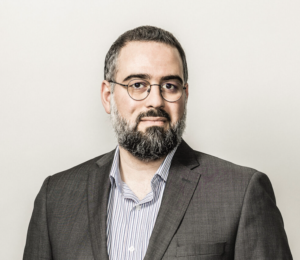A recent study performed by scientists at York University has recommended that a new artificial intelligence (AI) method is significantly more effective compared to the human eye in anticipating therapy outcomes in patients with brain metastases.
 York Research Chair and Professor Ali Sadeghi Naini, lead author on the study. Image Credit: York University.
York Research Chair and Professor Ali Sadeghi Naini, lead author on the study. Image Credit: York University.
The research group believes that the new research and technology could ultimately result in better health outcomes and highly tailored treatment plans for cancer patients.
This is a sophisticated and comprehensive analysis of MRIs to find features and patterns that are not usually captured by the human eye.
Ali Sadeghi-Naini, Study Lead Author and Research Chair, Biomedical Engineering and Computer Science, Lassonde School of Engineering, York University
Sadeghi-Naini added, “We hope our technique, which is a novel AI-based predictive method of detecting radiotherapy failure in brain metastasis, will be able to help oncologists and patients make better informed decisions and adjust treatment in a situation where time is of the essence.”
Earlier studies have shown that by utilizing standard practices, such as MRI imaging, which evaluates the location, size—and a number of brain metastases— as well as the main cancer type and condition of the patient, oncologists can anticipate treatment failure (specified as the continued growth of the tumor) approximately 65% of the time. The scientists made and tested numerous AI models, and their best one had an accuracy of 83%.
Brain metastases are a type of cancerous tumor that tends to develop when main cancers in the breasts, lungs, colon, or other body parts are spread to the brain through the lymphatic system or bloodstream. While there is an availability of several treatment options, stereotactic radiotherapy is considered more common, with the treatment consisting of concentrated doses of radiation targeted at the area along with the tumor.
Sadeghi-Naini added, “Not all of the tumors respond to radiation—up to 30 per cent of these patients have continued growth of their tumor, even after treatment. This is often not discovered until months after treatment via follow-up MRI.”
It is an especially debilitating condition, with most people yielding to the disease between three months to five years following the diagnosis.
“It’s very important to predict therapy response even before that therapy begins,” Sadeghi-Naini continues.
With the help of a machine-learning method called deep learning, the scientists made artificial neural networks trained on a huge pool of data and then taught the AI to pay more attention to particular areas.
When you look at an MRI, you see areas within or surrounding the tumor where the intensity and pattern is different, so you attend to those parts with your vision system more, an AI algorithm is blind to this.
Ali Sadeghi-Naini, Study Lead Author and Research Chair, Biomedical Engineering and Computer Science, Lassonde School of Engineering, York University
Sadeghi-Naini added, “The attention mechanism we incorporated into the algorithm helps these AI tools to learn which part of these images are more important and put more weight on that for analysis and prediction.”
The study that has been available at present online has been published in the IEEE Journal of Translational Engineering in Health and Medicine. The study has been partially funded by the Terry Fox Research Institute (TFRI). The modeling work was done at Sadeghi-Naini’s lab at York’s Keele Campus with York PhD student Ali Jalalifar, the first author of the study.
When data acquisition and interpreting the outcomes from over 120 patients were taken into account, the team could leverage York’s long-lasting collaborative relationship with Sunnybrook Health Sciences Centre in Toronto. The study’s other funders included the Natural Sciences and Engineering Research Council of Canada (NSERC) and the Hatch Memorial Foundation.
Sadeghi-Naini states that while more research needs to be done, the outcomes point to AI being a possibly considerable tool in the precision management of brain metastasis and even other types of cancer later.
The following step to adopting this as a clinical practice would be looking at a bigger cohort and a multi-institutional data set. From there, a clinical trial could be created.
If standard treatments can be tailored for patients based on their response to treatments—that can be predicted before treatment even starts—there’s a good chance that the overall survival of the patients can be improved.
Ali Sadeghi-Naini, Study Lead Author and Research Chair, Biomedical Engineering and Computer Science, Lassonde School of Engineering, York University
Being part of its long‐standing program involving the best cancer researchers throughout Canada, the Terry Fox New Frontiers Program Project Grants, TFRI is funding additional research in ultrasound and MRI for cancer therapy by Sadeghi-Naini and a clinicians group and researchers based out of Sunnybrook Health Sciences Center to the tune of $6 million for the next six years. Sadeghi-Naini is heading the biomedical computational-AI core of the program, receiving $900,000 of that funding.
Predicting cancer treatment failure with artificial intelligence
Video Credit: York University.
Journal Reference
Jalaifar, S. A., et al. (2022) A Self-Attention-Guided 3D Deep Residual Network With Big Transfer to Predict Local Failure in Brain Metastasis After Radiotherapy Using Multi-Channel MRI. IEEE Journal of Translational Engineering in Health and Medicine. doi.org/10.1109/JTEHM.2022.3219625.